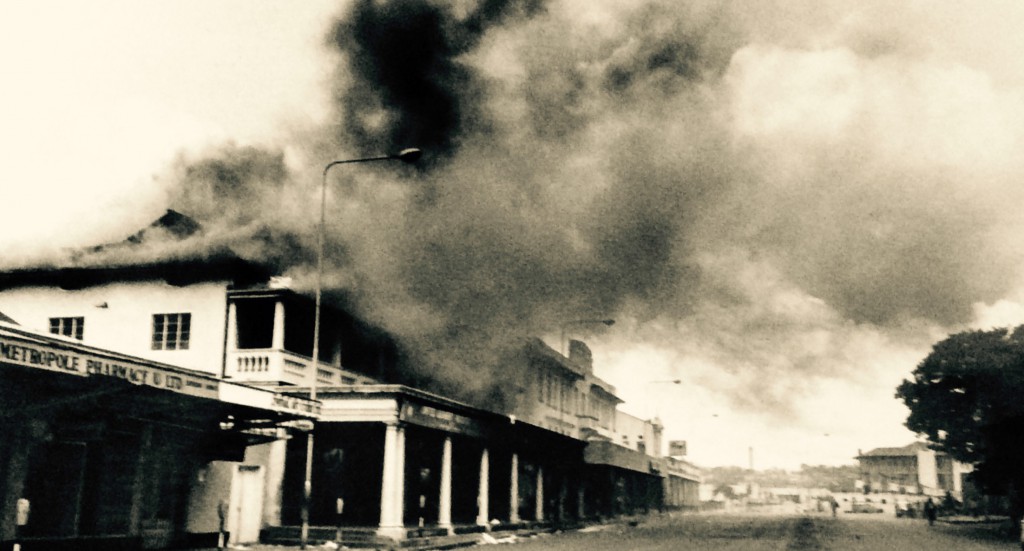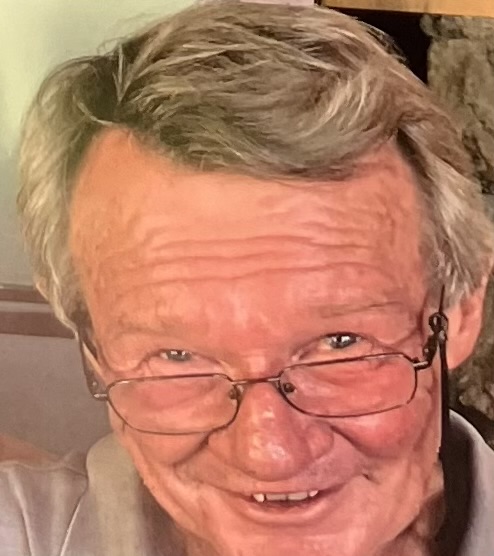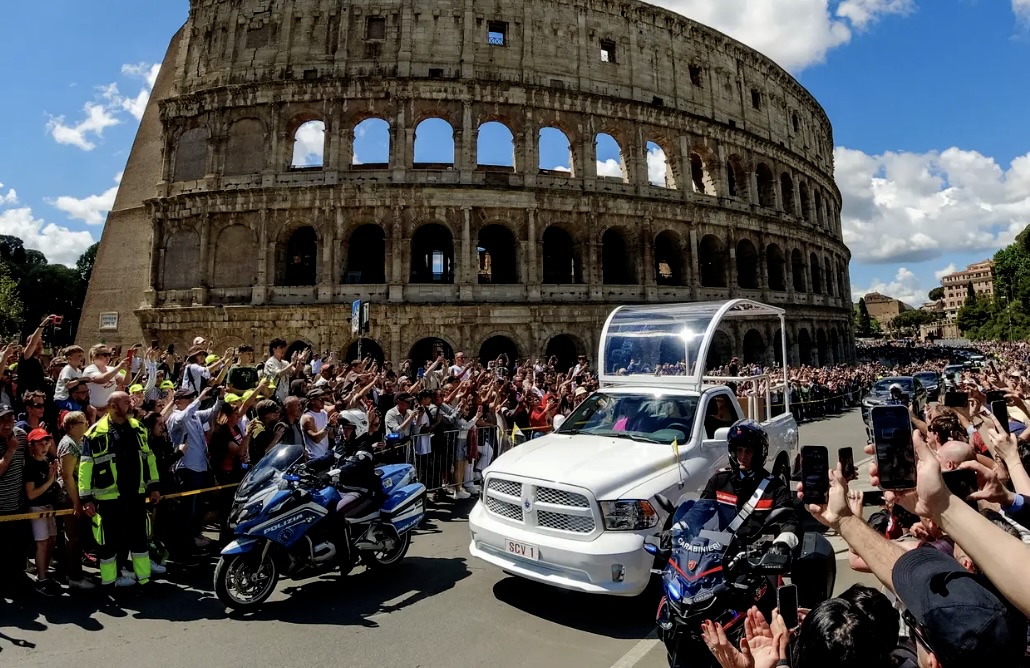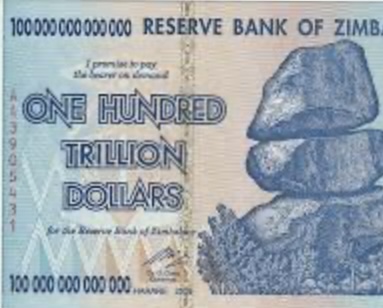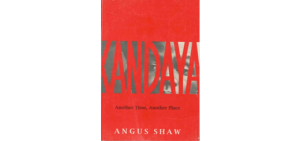One of the bloodiest reigns in history is over. For eight years the man they called the Black Hitler ruled over Uganda with unprecedented brutality. Over these years thousands upon…
Amin seizes power
CHAPTER I
‘The time is now ripe for us very seriously to consider how best we can ensure that there is a permanent return to a sense of unity, freedom and liberty in Uganda.’ Major General Idi Amin Dada
Daybreak came abruptly – and with it, gunfire. Battle prepared troops lay in position around Parliament building. Swiftly, soldiers threw up road blocks on the approaches, shooting out the tyres of cars parked in nearly streets.
Overshadowing the crack of sporadic gunfire and the clatter of soldiers boots as they dispersed to key positions was the rumble of tanks, on the move before 3:00 a.m, churning up the city’s thin Tarmac.
The day: January 25, 1971. The place: Kampala, capital of Uganda. It was a moment in which yet again the history of Africa was changing – being written in violence and blood.
Down the road from Parliament, which was due to resume soon after President Milton Obote returned from the Commonwealth Prime Ministers’ Conference in Singapore, a crack Uganda squad, the Mbuya Hill Battalion, stormed the Voice of Uganda radio station.
An early morning announcer, sub-machine pistol pressing into his ribs, fumbled to put on martial music. Jeeps squealed to a halt at the main post office complex. Telephone and telex lines were disconnected.
Twenty two miles to the south, a military convoy rumbled towards Entebbe Airport. A mile or two ahead of it, a saloon car was carrying four Catholic priests. One of them, Father Guerts, of the Canadian Order of the White Fathers of Africa, was saying his farewells to his three brothers-in-Christ.
They were early. The Sabena flight which would carry Father Guerts to Europe en route to Canada had not yet arrived. The friends relaxed in the airport lounge, chatting over small matters.
Volleys of machine gun fire broke the calm, followed by the thump of artillery. A shell burst through the airport’s main entrance killing two of the priests instantly.
Outside, soldiers quickly laid barbed wire across the runway, encircled the airport buildings and kicked their way into the control tower.
Today Father Guerts would not be going back home to Canada.
An NCO ordered three of his men to drag the shrapnel-torn bodies of the two white priests down to the banks of Lake Victoria. Crocodiles would soon find the floating corpses.
Foreign tourists bound for Murchison Falls stood against a wall with their hands up.
‘Go back to your hotels. Do not move until you are told’.
Overhead the sun was nearing its zenith. Along the road not far from Entebbe Airport, crowds of flies had begun to swarm. The doors of the Hippo Bar remained shuttered. The flies had found more corpses to feast upon.
Mortar fire punctuated the rattle of automatic weapons in Kampala. A Land Rover carried seven bodies away from Parliament precincts. The door of the President’s office inside had been broken down. After bursts of shooting an armoured car positioned itself in the compound at the residence of French Ambassador Albert Thabault. City residents who had set out for work were told by soldiers to go home.
British High Commissioner Richard Slater warned his nationals not to venture out.
Fifty miles to the east fighting flared between soldiers of the Uganda Army 3rd battalion at Jinja. The victors moved on to seize the Owen Falls Hydro-Electric dam and, that secure, began marching towards Kampala. The 2nd battalion headed for the city too – from its Mbarara base 150 miles to the south-west.
Soldiers surrounded the ruins of Mengo Hill palace where Acholi and Langi troops loyal to President Milton Obote were camped. Other detachments cordoned off Nsamba police barracks and the police training college a mile from the centre of Kampala. In a radio studio at the Voice of Uganda, Warrant Officer Class 2 Sam Aswa ran his eyes down a roughly prepared announcement.
‘The Uganda Armed Forces have this day decided to take over power from Obote and hand it to our fellow soldier Major General Idi Amin Dada … and we hereby entrust him to lead this our beloved country of Uganda to peace and goodwill among all.’
Amin was inevitably to fall seven years later in 1979:
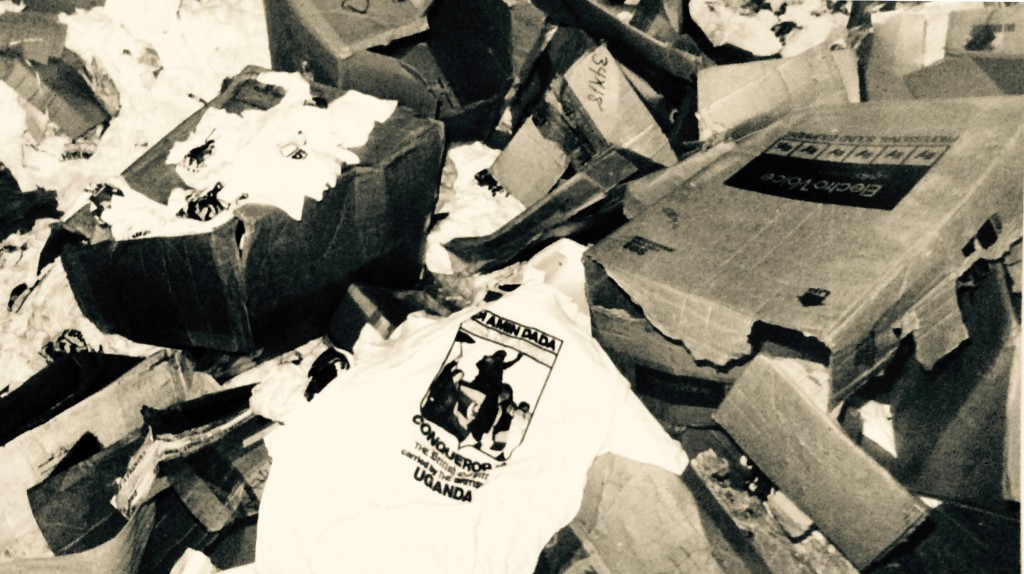
A looted storeroom at Amin’s mansion. He printed hundreds of tee shirts depicting him as The Conquerer of the British Empire, taken from a photo of the occasion he forced four white businessmen to carry him in a sedan chair. One of the businessmen, car dealer Bob Scanlon, was murdered soon after the photo was taken.

